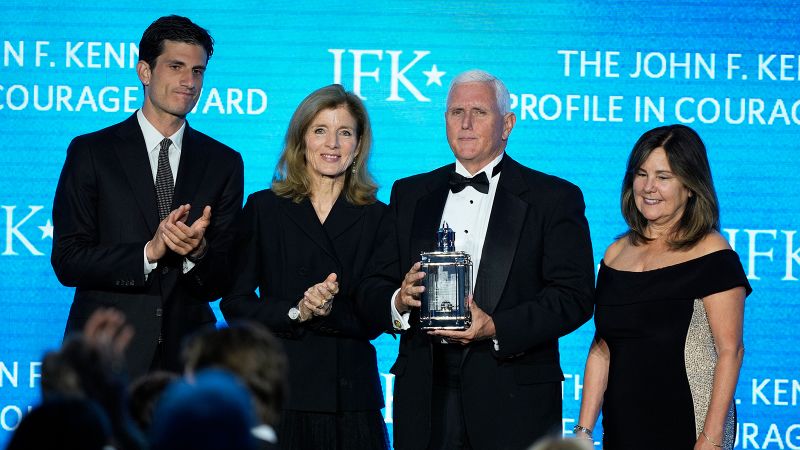From Chaos to Courage: Pence Transforms January 6 Narrative at JFK Award Ceremony

In a powerful moment of reflection, former Vice President Mike Pence celebrated the resilience of American democracy while accepting the prestigious John F. Kennedy Profile in Courage Award. Speaking candidly about the tumultuous events of January 6, 2021, Pence transformed a day of potential despair into a narrative of hope and democratic strength.
Describing the aftermath of the Capitol attack, Pence emphasized how Congress's unwavering commitment to complete its constitutional responsibilities ultimately represented a profound triumph of freedom. Despite the chaos and violence that unfolded, lawmakers returned to certify the presidential election results, demonstrating the enduring power of democratic institutions.
His remarks underscored the importance of institutional integrity and the ability of democratic processes to withstand unprecedented challenges. By framing January 6 as a moment of national resilience rather than defeat, Pence offered a message of optimism about the fundamental strength of the American democratic system.
